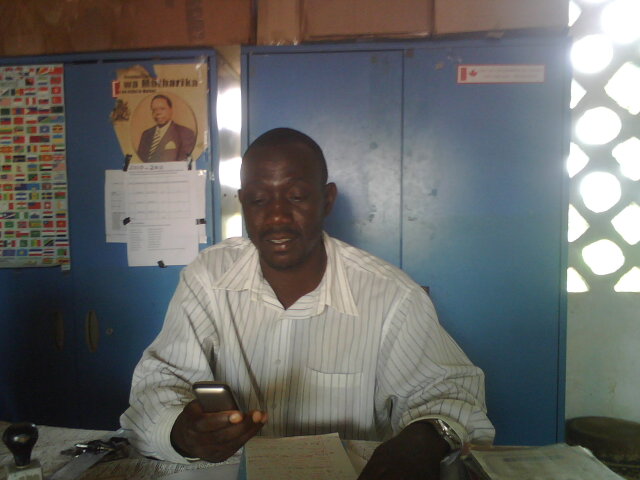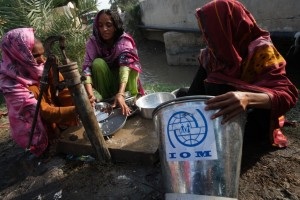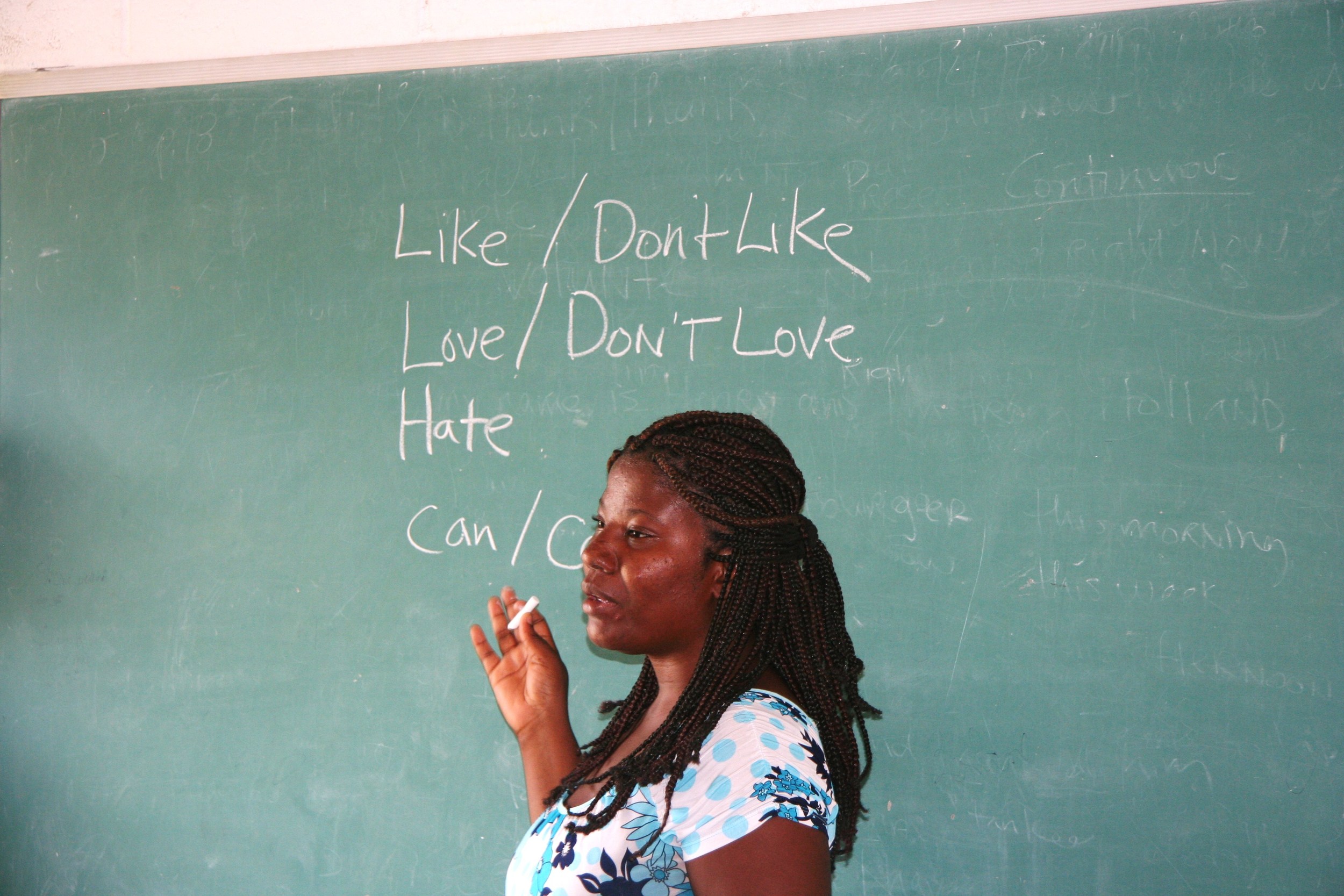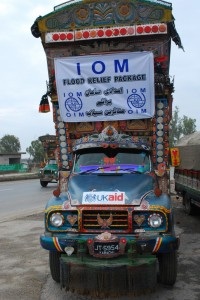The arrival of COVID-19 in Africa promised to claw back gains made in the education sector, as schools remained closed and curriculum interrupted. To keep learning happening during the lockdown, stakeholders in the industry have come up with numerous policies and guidance, such as rolling out online-based courses, and use of television and radio broadcasts. More than often, the majority of the students are left out as their households cannot afford these platforms. We interviewed Ellen Carney, Geneva Global’s Associate Program Director in Uganda and Ethiopia, on the Frontline+Education platform that offers possibilities of addressing these challenges.
The SMS Paradox: An Argument for Dumb Pipes
As it turns out - most of human infrastructure is built on (arguably) secure, dumb pipes. It’s what enables us to rely on infrastructure without constantly worrying that it’s being used against us. Confidence in the security of dumb pipes is why we drink water from taps (or bottles), trust pharmacists, and express some of our most personal things to our loved ones, over the phone. In fact, one of the things that makes Signal such a growingly popular app is that its lack of commercial motivation means that it doesn’t have to make the revenue-driven turn to user exploitation. Signal can stay smart about being intelligently secure, dumb (wilfully ignorant, really) pipes.
The Role of Text Messaging in Covid-19 Management
Pandemics have a classic hallmark; they cause widespread uneasiness and unrest when they hit and the ripple effects can still be felt in their wake. During this period of uncertainty, lack of coherent messaging targeting communities springs up misinformation, rendering prevention and mitigation efforts futile and chaotic.
Kicking conflict into touch with FrontlineSMS - a post from National Geographic
Njenga Kahiro, Kinship Conservation Fellow and member of the Zeitz Foundation, started the Laikipia Unity Cup in 2010 when he decided to combine environmental education and a football tournament. Laikipia is a countyin central Kenya where conflict between warring communities and stripping of natural resources are both fairly common. Njenga, with the help of his foundation, put together football teams from each region , usually combining young citizens of quarreling communities, and host a tournament that included matches, educational theater, and local conservation projects.
FrontlineSMS helps The Busara Center for Behavioral Economics cut 16 hours of work down to 30 minutes
The Busara Center for Behavioral Economics is a research laboratory in Nairobi, Kenya focused onproviding researchers around the world with an opportunity to conduct studies in a variety of behavioral sciences with a strongly under-represented subject pool. Headed by Johannes Haushofer, a postdoctoral fellow at Harvard University and the Abdul Latif Jameel Poverty Action Lab (J-PAL), the Busara Center strives to replicate the controlled lab settings in a novel environment. Busara is housed under the Innovations for Poverty Action (IPA), a non-profit organization focused on developing and evaluating poverty alleviation programs around the world.
SMS Story Research Project, Papua New Guinea
We are using Frontline SMS in Papua New Guinea (PNG) to send stories and lesson plans every day to elementary teachers in rural areas. The SMS story team includes international volunteers working with Voluntary Service Overseas (VSO) and the research project is funded by the Australian Agency for International Development (AusAID) through the Economic and Public Sector Program (EPSP).
A Day Well Spent at FrontlineSMS
Given the incredible growth in mobile usage in the last decade, it comes as no surprise that many organisations are embracing the use of mobile technology to expand their reach and engage with communities. This has come with its fair share of challenges, given some of the limitations of technology such as poor mobile connectivity in some areas, SMS has become the more reliable and inexpensive option.
Improving Participatory Governance in Ugandan Schools using FrontlineSMS
This post is temporarily unavailable. Apologies for any inconvenience. For further examples of FrontlineSMS in action check out other guest posts on our blog here.
Ericsson Business Review: "Lessons on Learning"
FrontlineSMS Founder Ken Banks was interviewed by The Ericsson Business Review last year, and this interview has now been made available online. The interview focuses on how we often define innovation too narrowly, and why “development issues such as education require us to start with the problem, not the technology”. A summary is available on the Ericsson “Networked Society Blog” here, and the full interview is available in pdf format here. You can find an extract of the interview below:
What role can mobile technology play in development?
Mobile networks open up the possibility of reaching communities that would otherwise miss out on any meaningful connection with the rest of the world, and allow them to engage, make themselves heard and to be empowered by information.
You have been involved in many fruitful mobile-centered development initiatives. What separates the successful projects from the unsuccessful ones?
The single most important thing is starting with the problem and not the technology. It is quite common for people to grab the latest smartphone or iPad or whatever happens to be hot at the moment and try to figure out how it could be used in a development context. This approach can work, but most of the time it is destined to fail. If you go in with technology as your main objective, you will end up shoehorning it into contexts where it will not always work. The solution to a development question could be pencils or paper – it does not necessarily need to have anything to do with ict. I think that the correct sequence should instead be problem-people-technology. By “people” I mean the individuals at the grassroots who usually understand the problem better than anybody else.
To read the full interview, please click here.
Supporting Education through SMS in Kyrgyzstan
IREX is an international non-profit organization working on education, independent media and civil society development. Recently, they have been using FrontlineSMS as a tool for efficient management of their Global Connections and Exchange (GCE) and Digital Youth Dialogue (DYD) programs in Kyrgyzstan. In this guest post IREX's Myahriban Karyagdyyeva and Tynchtyk Zhanadylov explain how their use of FrontlineSMS is making a difference in their work on these programs:

IREX has been implementing our Global Connections and Exchange (GCE) and Digital Youth Dialogue (DYD) programs in 22 schools and 3 librariesthroughout Kyrgyzstan. The GCE and DYD programs aim to equip students and the teachers with technology and training, in order to enhance classroom learning. In each school or library IREX has an appointed teacher who is responsible for coordination of activities between IREX and the institution. This set up requires IREX and teachers to have constant communication, in order to be able to keep up with dynamic program activities.
However, efficient communications on these programs initially proved challenging. Every day, the IREX team based in Bishkek need to send out different announcements and instructions to teachers, and at first we were doing this via email only. Yet we soon found that teachers often aren't able to check their emails during the day, therefore relying on email to communicate was resulting in delays. Our team often had to call each teacher individually in order to ask them to check their email. This took up a significant amount of staff time, and was also an inconvenience to teachers. In addition, we also have a need to receive information from teachers every day, and so there was a clear need for a quick and interactive communications channel which could make this process more convenient all round.
The teachers and students we’re working with are attached to their cell phones, and therefore our team decided to experiment with text messaging as a method of communication. FrontlineSMS software enabled us to use mass text messaging, which streamlined our communication and allowed us to use time more efficiently. It only takes about a minute to send out text messages to all of our teachers through FrontlineSMS, whereas in the past staff were making individual calls which took a lot longer.
Currently FrontlineSMS is used in many different ways to help us administer daily tasks in our programs. This includes sending reminders to check emails or prepare for upcoming deadlines, as well as interaction between our team and teachers on any urgent questions. Using FrontlineSMS helps to improve the speed of communication, which in turn ensures that program deadlines are met and results in less time being needed for coordination of activities in different regions.
We have found that there are many other advantages to using FrontlineSMS, too. Internet speed is low outside of in Kyrgyzstan’s urban centers and connection problems are a constant challenge. Few people have internet in their homes, yet everyone has mobile phones and so using SMS makes regular communication accessible to more of those we work with. When we ask teachers how they like working with SMS, they say that they find it very convenient, useful and flexible. It helps them to implement tasks faster, and helps them stay always informed in areas which are offline. When working with different communities who don’t have regular access to internet or email, SMS is clearly a useful solution for ensuring fast two-way communication.
Moving forward we plan to continue using FrontlineSMS for communication with teachers, and we will also be using FrontlineSMS in new ways too. We plan to collect SMS feedback reports from our program participants on how often they attend IREX trainings and where trainings are being held. We will then map these reports using online mapping tool Ushahidi, and this will allow us to visualize our impact. In addition, the GCE program is also planning to use FrontlineSMS to conduct polling and short surveys among students and teachers, which will help us to further understand the value of our program and the needs that program participants have. We’re really excited about all we have planned, and will continue to build up the use of FrontlineSMS in our work.
To find out more about IREX visit http://www.irex.org
Supporting disaster affected communities in Haiti using FrontlineSMS
Guest post from Andy Chaggar, Executive Director of European Disaster Volunteers (EDV) who are using FrontlineSMS in Haiti:
European Disaster Volunteers' mission is to help disaster affected communities worldwide achieve sustainable recovery. This means doing more than simply addressing the damage caused by disasters; it also means addressing the underlying, long-term factors that made communities vulnerable in the first place.
We’ve been working in Port-au-Prince, Haiti since June 2010 and have placed a high priority on education since the beginning. EDV has rebuilt or repaired 36 classrooms in eight schools, are providing scholarships to 50 primary school children, and also run free English classes for adults.
Having originally graduated with a degree in electronic engineering in 1999, this work is a major change in direction for me. However, given my previous career it’s probably not surprising that I’ve retained a strong interest in technology, particularly in its application to disasters and development. So, when I heard about FrontlineSMS, I immediately saw its usefulness to EDV’s current work in Haiti.
From the outset I knew FrontlineSMS would be particularly helpful for our English Education program. English is a key vocational skill for Haitians seeking employment and, almost as soon as we arrived, we started getting requests from our community for language support. Over the past 17 months, what began as informal classes has developed into a structured program that includes 120 students in eight weekly classes at four different levels.
Managing communications in the program was a challenge from the outset. In addition to the students, we have to coordinate our Haitian teachers and international volunteers. Everyone needs to be kept informed of the time and location of meetings and scheduled classes are prone to disruption.
In a country like Haiti, everyday issues like teachers being ill are compounded by problems of instability. Potential hurricanes, political unrest or simply a particularly heavy rainstorm all have the ability to disrupt class, so the ability to communicate is vital.
Very few Haitians have regular access to the Internet so group emails aren’t an option. Before using FrontlineSMS, we would often have to scramble to call, or text, everyone affected to reschedule a class. In some cases, such as during heavy rain, an unlucky volunteer would have to walk to a class where we knew very few students would turn up simply to apologise to the few who did and tell them to try again next time.
Now, by using the software’s ability to create contact groups, we can very quickly and cheaply text all students in a given class or call all of our Haitian teachers in for a meeting.
Our English program is very popular and also has a big waiting list. When spots in our various classes recently opened up, we were also able to use FrontlineSMS to text over 100 prospective students and invite them to take a placement test so we could fill the classes with students at the right level.
Overall, this simple but effective technology has made managing our English Program much easier. Without FrontlineSMS, we would still be using chaotic, time-consuming and inefficient methods of communicating, all of which would distract and disrupt the actual work of teaching.
The fact that FrontlineSMS is free is also very appealing to us. While we’re a growing charity, we’re still fairly small and love to save money by using free technology. Beyond this, however, an important principle is at stake. EDV is committed to working with disaster survivors to build local capacity to meet local needs. This partly means connecting survivors with tools they can use themselves. Even if we could afford to buy expensive, licensed software, the survivors we work with never could. As a result, we always prefer to use technology that is as accessible to survivors as it is to us.
We’re in the process of handing over leadership of the English Program to our local teachers and a Haitian school administrator. As part of this process, we’ll be providing a computer with the software and contact groups installed so that our communications solution is transferred. We’ve found using FrontlineSMS to be very intuitive so we’re confident our school administrator will continue to retain and develop use of the technology.
We have other future plans for use of FrontlineSMS in addition to our English Program, and see many ways it can help us operate more effectively. We currently also use the technology for our own internal messaging which is critical in Haiti due to security issues. Political demonstrations can be dangerous and can happen with little warning, so being able to quickly text all of our in-country volunteers and tell them to return to base immediately helps keep everyone safe.
We’ll definitely continue to use FrontlineSMS internally in other disaster zones, and we will continue to explore other potential project-related applications for the technology as well. For example, a couple of years ago I visited a community group in the Philippines who provided early warning alerts to its members living in typhoon and flood prone areas of Manila. While doing an amazing job, they were reliant on an aging infrastructure of radios and loudspeakers and this process could have been strengthened using FrontlineSMS.
I see the need for such early warning systems time and time again and I’m fairly confident that in the future such work could be complemented and improved by using FrontlineSMS to quickly text those in danger. Moving forward, I’m excited to see how FrontlineSMS, and technology overall, can be applied to solve important real-world challenges and both help to save and improve lives.
Global learning at the speed of a text message
In a rapidly changing, globalised world education can help young adults to understand life beyond their own national borders. Here, in our thirtieth guest blog post, Alex Monk, School Linking Officer at Plan UK, discusses how FrontlineSMS is being used to support a project called Plan-ed. This project links schools across the globe, and thus helps deepen young people’s understanding of our world today.

“The Plan-ed School Linking programme has been running since 2008 and connects young people aged between 7 - 14 in the UK with their counterparts in China, Kenya, Malawi, Senegal and Sierra Leone. Schools exchange pen-pal letters, e-mails, videos and local artifacts. The Linking programme also allows children to share examples of work on mutually relevant topics such as climate change, successful enterprise and Children’s Rights. This helps the young people involved to learn about others their age living in different areas of the world; to recognise their similarities and appreciate their differences.
The Plan-ed project uses a variety of communication methods to help linking schools stay in touch, including sending post, video conferencing, interaction through their website, and more recently text messaging. Over the past six months schools in Malawi, Sierra Leone and the UK have been using FrontlineSMS to communicate with their partner schools. The schools use FrontlineSMS to send texts confirming receipt of posted letters and material. They also exchange text messages about ideas for new projects, and to organise travel for teacher exchanges as part of the linking project, and even to wish each other happy holidays.
The videos here show Headteachers from two schools who have been linked together as part of this Plan-ed project.
Orphent Kawonga (Zombwe School in Malawi) and David Lodge (Countess Anne School in the UK) have been on teacher exchanges to each others schools, to help strengthen their link. Here they discuss the benefits of the use of FrontlineSMS to support their link projects.
Ophent from Zombwe school on School Linking and FrontlineSMS from Plan UK on Vimeo.
David Lodge, Headteacher Countess Anne School from Plan-ed on Vimeo.
The benefit of using FrontlineSMS for the schools involved is that they have a way to regularly stay in touch with each other, and keep a record of their communications. FrontlineSMS has proved particularly helpful in the schools in Malawi in which the internet is not easily accessible, and the post can take a while to get through. Sending and receiving text messages is a quick and convenient way to stay in touch that helps the teachers maintain momentum in the linking school project, thus building sustainable connections between the schools.
Moving forward teachers in Malawi, Sierra Leone and the UK will continue using FrontlineSMS to support their connections with their Link schools. In addition, Plan-ed hopes to explore further ways to utilise FrontlineSMS. For example we are investigating the idea of using FrontlineSMS for more operational purposes; to help Plan-ed’s country coordinators stay in touch with the schools more regularly. It really is a great help to have a piece of technology such as FrontlineSMS, which helps facilitate quick communication in otherwise hard to reach areas of the world.”
For more information on Plan-ed visit: http://www.planschoolslink.org/
Texting for life in Pakistan: the International Organisation of Migration
The International Organisation for Migration, an intergovernmental organisation working to support people to return to their homes after being displaced by disaster of conflict, have been using FrontlineSMS in Pakistan for some months. Below, the twenty-eighth FrontlineSMS guest post is an operational update from Maria Ahmed and Isabel Leigh, in the Mass Communication Team.

October 15th is Global Handwashing Day, and in Pakistan, the IOM have been sending messages about hygiene and sanitation as part of their response to the devastating floods that hit Pakistan in recent months, affecting approximately 20 million people according to the UN's Office for the Coordination of Humanitarian Aid (OCHA).
IOM are leading the communication response on behalf of the UN 'Cluster System' of humanitarian responders, and have developed over 50 Public Service Announcements (PSAs) in Pashto, Sindhi and Punjabi on topics including prevention of diarrohea and malaria, water purification methods, mother and child health during the fasting month of Ramadan, child protection issues, treating snake bites, setting up durable shelters and fire safety in camps.
IOM first started using FrontlineSMS in the North in 2009, to mirror humanitarian messages sent out using radio broadcasts with informational texts. People in Northern Pakistan, nearly 3 million of whom were displaced by conflict in 2009, use cell phones extensively amongst family members, often texting in Urdu ( the national language) using the English script. Using FrontlineSMS has saved IOM over $15,000 compared to the costs they would have paid to develop an organised, mass texting system using a commercial supplier. Supported by Zong, the Pakistani subsidiary of China Mobile, IOM is sending free, bulk, informational messages to affectees and humanitarian workers across Pakistan to enhance informational outreach.
In the South, people are used to using mobiles for voice calls, but send far fewer text messages. So IOM are partnering with Zong, who have donated a million free phone calls through 100 cell phones to IOM to enable a free phone service for flood victims to get vital information, seek help and access relief services offered by the Government and aid agencies. IOM hope to continue to expand the service to reach more handsets in Sindh, Punjab and KP, and from January onwards, in Balochistan, Gilgit Baltistan and Pakistan Administered Kashmir.
SMS tackles farmer literacy in Niger
In this, the sixteenth in our series of FrontlineSMS guest posts, Joshua Haynes - a Masters student at The Fletcher School at Tufts University - describes their application of the software to help improve the lives of farmers in Niger, West Africa Projet Alphabétisation de Base par Cellulaire (ABC), conceived of and spearheaded by FrontlineSMS’s newest Advisory Board member Jenny Aker, uses mobile phones as tools to aid in adult literacy acquisition in rural Niger. This project is funded by UC Davis, Oxford University, Tufts University and Catholic Relief Services (CRS) and housed at and managed by CRS/Niger.
Adult literacy in rural areas faces an inherent problem. In Niger, for example, there are no novels, newspapers or journals in native languages like Hausa or Zarma. The 20% of Nigériens who are literate are literate in French. The vast majority of rural villagers have struggled to maintain their livelihoods since time immemorial without ever knowing how to read a single word. What’s the point of literacy if there is no need for written materials?
Mamadou Issoufou, like 80% of people who live in rural areas, has access to a couple of different weekly markets where he can buy and sell his millet. One market, Dogon Kirya, is 11 kilometers away and the other, Doubélma, is 15 kilometers away. As Dogon Kirya is closer, he usually travels there, but he knows that sometimes he can get a better price when he goes to Doubélma. If a fellow villager who traveled to Doubélma the previous week indicates that prices were better there than in Dogon Kirya, then Mamadou might decide to go the extra four kilometers, but he’s not sure he’ll get the same prices this week, too. He leaves it up to chance.
On Wednesdays, the Service d’Information sur les Marchés Agricoles (SIMA) sends radio broadcasts on the prices of the most important staples like millet and sorghum for the largest markets in the country. Unfortunately, Mamadou, like most rural farmers, doesn’t have access to the broadcast, and if he did, his two main markets aren’t large enough to be covered by SIMA. Even if they were large enough, Dogon Kirya’s market is held on Tuesdays, so any information from the radio would be six days old.

If Mamadou had access to some sort of real-time, demand-driven information, he could make better choices on where to buy and sell his goods. The mobile phone is a perfect device for transmitting information, but even though Mamadou may have access to a phone, he can’t read. The point of literacy in rural areas is increase access to information, and this is where FrontlineSMS plays an important role.
This past summer, between my first and second year as a graduate student at The Fletcher School at Tufts University, I was fortunate to work with Jenny, the amazing staff at CRS and SIMA, including Djibou Alzouma, Aïchatou Bety, Sadou Djibrilla, Scott Isbrandt and Ousseïni Sountalma, to develop a system called IMAC – Information sur les Marchés Agricoles par Cellulaire. IMAC – pronounce ‘ee-mak’ – allows users to query for farmgate and market prices of agriculture products in a number of markets in four languages. It is built to work as one of the Projet ABC components, but can be used in areas with higher literacy levels.

In addition to the querying functionality, we added the ability for SIMA-trained CRS agents to update the crop prices by sending IMAC a specially formatted SMS. The prices are quickly checked for errors in Niamey, the capital, and then are live for all to use. Before, it could take up to three weeks for market prices to get recorded, go through a number of different administrative stages and finally end up in the database in the capital, but now it takes a matter of seconds before the data can be accessed.
Although the data is stored and updated in the database, FrontlineSMS is the primary access point which captures the message, sends it to the database for processing, waits eagerly for the response, and speedily sends the response to the waiting villager. By exploiting FrontlineSMS’ HTMLRequest functionality, we were able to access a backend system and turn FrontlineSMS into a demand-driven automatic information dissemination tool.
I was fortunate to return to Niger in October (2009) to not only see how well the system was still working - a big relief for developers - but to be surprised by the number of new markets and products that had been added to the system. Thanks to FrontlineSMS, CRS and SIMA, these additional markets will allow even more villagers, once at least semi-literate, to obtain information that will better help them make more informed decisions about their economic resources.
Joshua Haynes Candidate, Masters of International Business, 2010 The Fletcher School Tufts University http://fletcher.tufts.edu












